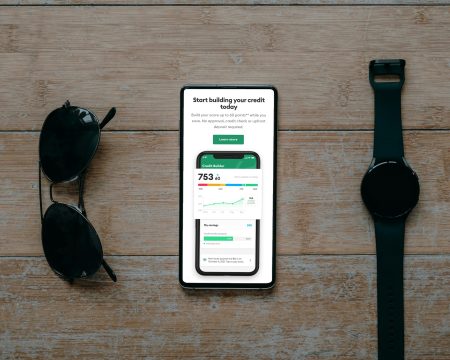There is no way to calculate your credit score, the private companies are the sole proprietors of the credit score determining formulae. Having said that, you can always know your credit score by asking for a report from any of three credit agencies. As per rule, you are entitled to get a free report annually.
You can always improve your credit score even if it has dropped down to the rock bottom. Good credit point is an indication that you are efficient at your personal finance management. It helps you obtain a loan quickly and in most of the cases, at a very low interest rate. There are several factors that beat your credit score down to a lower level. So, by eliminating those factors, you can easily make an improvement in your credit ranking.
Maintain a good payment history
Delaying in payment is often the main source of problem. The creditors report it to the agency. Late payment shows in your credit report and shears from your credit point. Bankruptcy will also dent your credit history and stay there for a good long time. So, always be careful about paying your installment in time, otherwise you will be charged with fine and all these will take your score a few notches downward.
The agencies always keep an unblinking watch on whether you pay bills in time or not. If you have been irregular in making payment, change your habit. It will not only up your score but also save you on late fines.
Eliminate debt
Even a single debt can blemish your credit standing. So just imagine what if you are saddled with an overwhelming debt burden? You may not be able to clear all debts at a one go, think about partly payment. Speak to your lenders if they agree to your minimum payment proposal. They are likely to come round if you can successfully get across your inability to pay at a time. An alternative way is to seek a negotiation loan that will help you ladle out payment to the creditors in one swoop.
Get prepaid credit cards
Indiscriminate use of credit card is another reason why your credit report has taken a nosedive. Get it back to the high point by obtaining a few credit cards. Remember to buy the prepaid version. The advantage of having a prepaid credit card is that it will put a cap on your spending. Going beyond the permissible limit as mentioned in the credit card is not possible. How you manage expenses with your credit card will be reported to the credit bureau and it will build up your credit history in a slow but steady manner.
Make correction in your credit report
The credit bureaus try hard to make your report as perfect as possible. However, to err is human! So check for wrong entries and if found any, immediately report to the bureau about it. Correction of errors will also improve your credit score. However, it may take some time for the correction to show in your credit record as the agencies will double check to verify your claim.
Improving Your Credit Score By Buying A House
If you are buying a home with a mortgage from a reputable lender, your credit score is likely to already be quite good, or you would not be able to get a loan. As a first time buyer, you will suddenly appear to have many thousands of debt which you didn’t have before, so in the first month or so after taking out your mortgage, your credit score may go down. This is because of the increased indebtedness and also because – unless you only approached one lender – the inquiries made by lenders will have had their effect and driven your score downwards.
This will be only temporary, though. If you make sure that you always pay your mortgage and other repayments on time, buying a home will improve your credit score a lot. Credit ratings are not created by one single thing, so you shouldn’t just rely on the fact that you are buying your home to keep your credit score high. Applying for loans will always reduce your score temporarily as every check by a lender has a deleterious effect on your score – this isn’t a huge drop, but is a downward trend. So it is best if shopping around to just look online, rather than make an application which you then don’t follow through.
The best piece of advice when you are trying to improve your credit score is to always pay on time. You should look carefully at the small print on all of your credit card bills, loan agreements and similar paperwork to see how long a payment takes to get to the payee. Most mortgage payments are taken as a direct debit, so there should be little problem with them, but if you don’t have one set up, you should make sure you pay early if anything, because a payment made on the due day may end up taking a while to be credited, meanwhile you are shown as a late payer. Even if this is only by a day, these black marks can add up. If you can’t find out how long the processing takes, ask your lender – it is worth taking the time to check.
Some people who don’t owe anyone a penny are often disappointed to find they have a low credit rating when it comes to taking out a loan or mortgage. Essentially, someone with current credit arrangements and a good track record of payments will have a better credit score than someone who doesn’t owe anyone any money at all. If you are planning a big purchase needing a loan, it is a good idea to take out a few small loans or perhaps a credit card and being absolutely scrupulous in how you keep up payments, making them early and over the minimum when you can. This will give you a financial ‘footprint’ which a credit agency can find and put a score to – then the bigger loan will go through with less effort. Furthermore, this financial footprint will also enable you to buy a home quickly next time you are applying for a mortgage.
How to Ensure You Have a Good Credit Score
Not having a good credit score can be problematic if you want to get hold of a loan at a favourable rate of interest; credit scores are primarily worked out via your past credit history, and how much you’ve borrowed and repaid in the past. Debts that haven’t been cleared, and issues with your employment or address history can all negatively impact on your credit score. In this way, it’s worth thinking about some ways in which you can try to ensure you get a good credit score.
Regularly Check Your Score
It’s possible to ask for a copy of your credit report from the UK’s three main credit agencies – Equifax, Callcredit, and Experian – this can usually be achieved for a small fee. Looking over your report can allow you to fix any inconsistencies or mistakes that might be affecting your credit score.
Pay Off Your Credit Cards
If you can, pay off as much or all of the balance of your credit cards every month to avoid incurring charges; similarly, try not to exceed your credit limit, and take advantage of 0 % balance transfers to get better rates.
Avoid Unnecessary Loans
Don’t apply for lots of different credit at the same time, as this will show up on your credit record; similarly, pick the right loans with bad credit depending on the credibility of the company- the compounded interest charges on these loans can be very high.
Find a Guarantor
If you have bad credit, try to get a loan with a guarantor – this is a third party that assumes responsibility for repayments if you can’t make them, and is able to help you to boost your credit score by ensuring consistent loan repayments.
Don’t Make Multiple Credit Card Applications
It’s important to avoid making lots of credit card applications over a short period of time, as this can end up with a lot of rejection, and repeated, and costly checks on your record.
Avoid Joint Financing with Another Person
A joint financing approach can be a problem if you have a good credit score and they do not – bad credit by association can end up dragging both your scores down, even if you have been able to make consistent repayments elsewhere.
Get the Details Right
Make sure you update your details with credit agencies and lenders; this includes a fixed land line on top of a mobile, and updates to your employment history and living situation; being with the same bank for an extended period of time is also recommended to show that you’re in a stable position to borrow.
Get on the Electoral Roll
Another way to demonstrate your stability and ability to borrow is to get on the electoral roll; doing so will help to convince lenders that they aren’t encountering fraud, and will give you more ties to your local area.
Cancel Old Credit Cards
Any out of date credit cards should be cancelled, as they will appear on your file, even if you no longer pay into them. Check to see whether there are any outstanding cards on your record by requesting it from credit agencies.
Clear Off Any Old Debts
These debts might include anything from county court judgements to defaults on personal loans or car payments; make sure that everything is paid off that can be to avoid taking a hit on your file.








